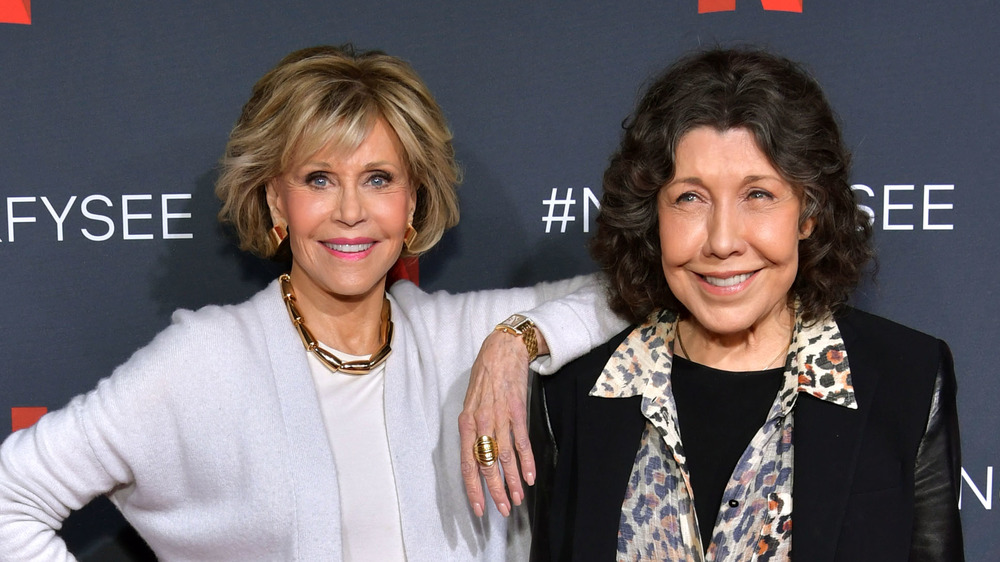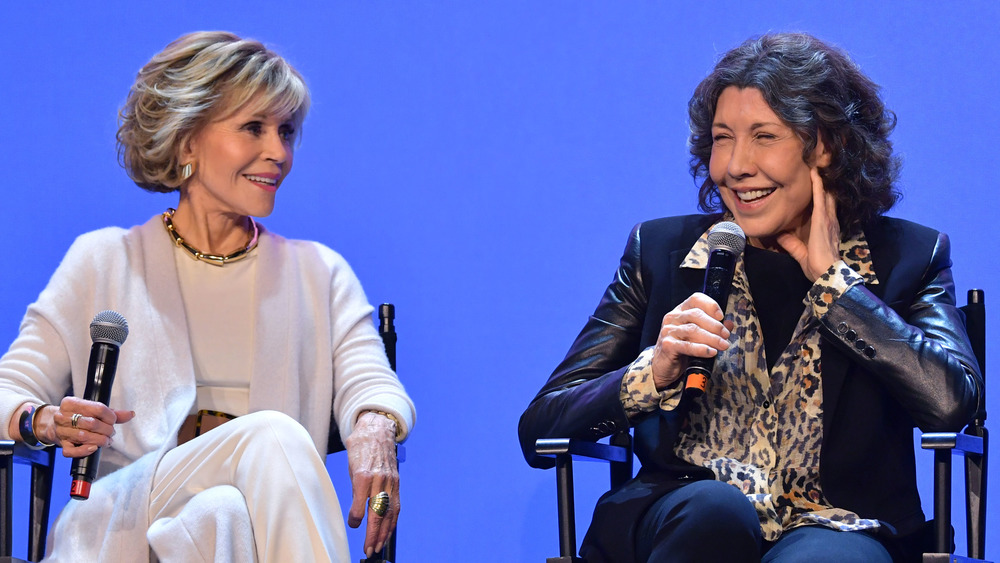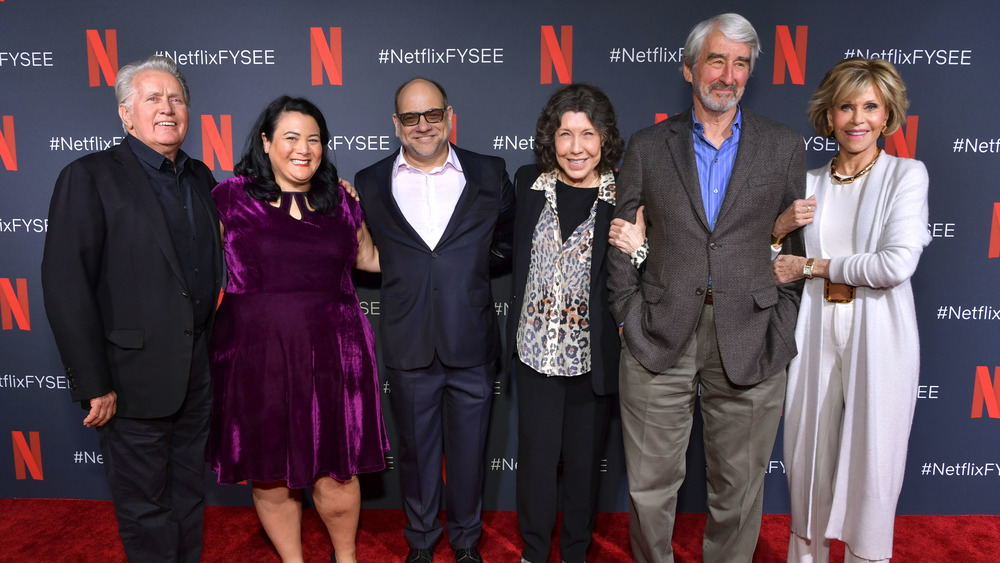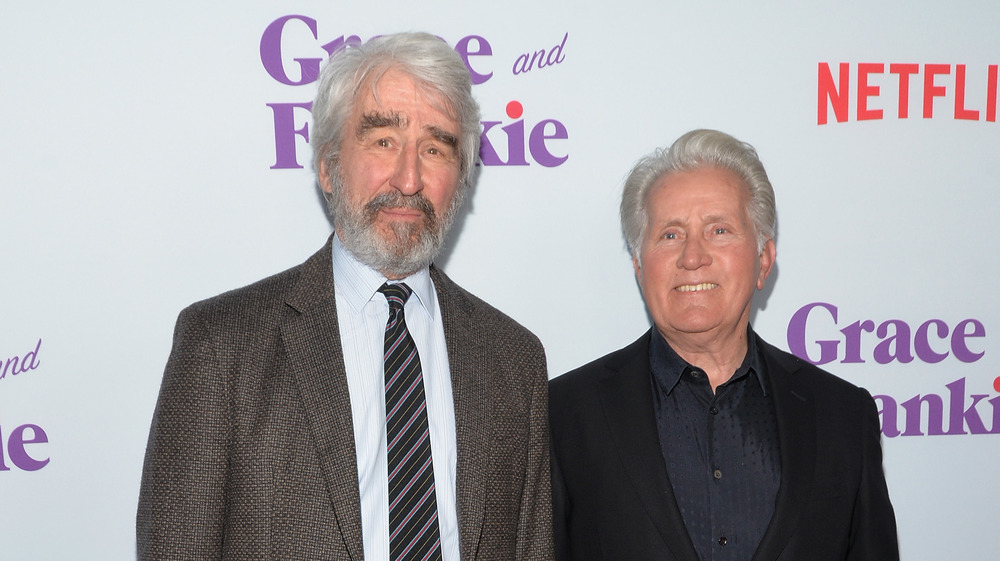Netflix Canceled Grace And Frankie. It's Pretty Clear Why
Picture this: Two women, who are quite literally the antithesis of one another, only tolerate each other due to their husbands being partners at a successful law firm, until — plot twist — one day the women find themselves left high and dry by their husbands... who left them not for other women, but for each other. Suddenly these women, played by heavy-hitting actresses Jane Fonda and Lily Tomlin, are left to piece back what's left of their picturesque lives, gasp, together. Let the hijinks and hilarity ensue!
And that, folks, is the premise for the popular Netflix series Grace and Frankie. Call it the modern-day Golden Girls, if you will. (If the titular Golden Girls hated one another, that is.) Unfortunately, however, the show appeared to run its course, and after six long seasons, was ultimately canceled by the powers that be.
But with such a devoted following, many fans were left heartbroken and questioning just how Netflix could commit such a seemingly heinous crime. Keep reading after the jump for some possible reasons as to why the popular show may have gotten the axe.
It's all about the Benjamins, baby!
Perhaps money really is the root of all evil — or at least in the case of Netflix canceling their beloved series Grace and Frankie. Vanity Fair initially reported Jane Fonda and Lily Tomlin were "outraged" after learning their male counterparts on the show, actors Sam Waterston and Martin Sheen, were being paid the same salary as them. And apparently they weren't too happy about it. What's that saying, "Happy wife, happy life"? Maybe that applies to work wives too.
During a candid press conference, the leading ladies publicly vented their frustrations. "[Tomlin] found out [Sam Waterston and Martin Sheen] are getting the same salary that we are," Fonda announced during the conference (via VF). "That doesn't make us happy," she concluded. Yikes!
It's worth noting, however, that shortly after the story ran both Fonda and Tomlin issued yet another statement, singing a fairly different tune. "We made a joke in an interview about our salaries which was taken out of context. This just reminds us to be mindful of how things come across in interviews. We appreciate everyone's support and the attention to this issue but the structure of Grace and Frankie is fair, and we couldn't be happier to work with Skydance, Netflix and the great cast of this show," the statement read.
And while all that may be true... it's possible the damage had already been done. After all, as the saying goes: You can't put the toothpaste back in the tube.
'Grace and Frankie' may have missed the mark in a few areas
Could it be that Grace and Frankie was canceled due to the fact that their storyline was a little too close for comfort to that of the Amazon series, Transparent, a show in which the main character, an older transgender woman, comes out to her family and friends? Unfortunately, some would argue yes, as pointed out by an article in Salon. During the piece, the author harkens back to many storylines that appeared to be strikingly similar to that of Transparent.
Aside from that, some found that the comedy on the show fell flat, leaving viewers to scratch their head at the intended punch lines. In fact, the digital media company Mic gave the series a big fat "F" for trying its hand in the queer category.
"The show's purpose is far simpler. Get four titans of screen together in a goofy comedy to have fun. On that level, it succeeds. But by including gay themes, Grace and Frankie has taken on the responsibility of being a queer show. On that level, it fails simply by not knowing what it's doing," the Mic article read, before specifically pointing to the show's mishandling of the on-screen chemistry between two gay men while also referencing the bad sex jokes. "And of course, there are bad anal sex jokes. It's all so reductive. We don't need this," the article declared.
Here's why 'Grace and Frankie' is a tad problematic
It's possible, however, that the biggest problem with Grace and Frankie is the way it seemingly "pits gay men against aging women," two demographics who are already struggling as it is. While it's no secret that the viewers are expected to be sympathetic to the women who have had their lives essentially turned upside-down during what is supposed to be their "golden years," is it not possible to be sympathetic to their male counterparts who have lived most of their lives closeted? Apparently not.
An article in Salon pointed out the "flippancy" and cavalier disregard with the way the show handled same-sex marriage and the act of coming out. "The premise is punchy, but that's almost all it is; the show's sympathies are so heavily slanted towards Grace (Fonda) and Frankie (Tomlin) that it's hard to see the positivity in Sol and Robert's decision," the article reads. And that, folks, is what some people call a swing and a miss.




